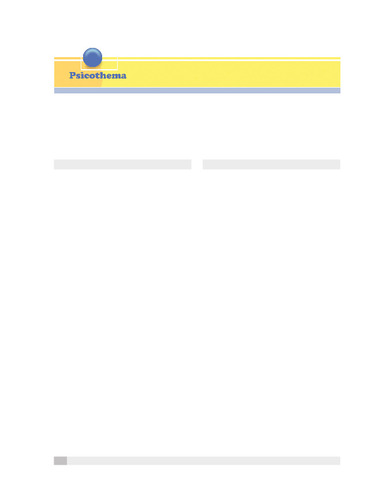A brief nursing intervention reduces anxiety before breast cancer screening mammography
Otros títulos:
Una intervención enfermera breve disminuye la ansiedad antes de una mamografía de screening de cáncer de mama
Fecha de publicación:
Versión del editor:
Citación:
Descripción física:
Resumen:
Background: Anxiety experienced by women during their participation in breast cancer screening programs can condition their adherence to the program. The aim was to determine whether a brief nursing intervention could reduce anxiety before screening mammography. Method: A randomized controlled trial carried out with 436 Spanish women aged between 50-69 years, who attended a population breast cancer screening program. The experimental group received an ad-hoc tailored intervention, which consisted of offering information about the screening program and the mammography exam, as well as of providing personal emotional support. Anxiety was assessed using the State-Trait Anxiety Inventory (STAI). Fear of screening outcome and fear of breast cancer were also assessed. Results: Women of the experimental group had 60% less probability of having a high anxiety state (OR = 0.40; 95%: CI [0.25, 0.65]), after adjusting for sociodemographic and clinical variables. Regarding trait anxiety, no differences were observed between groups. The stratified analysis showed that this positive impact was greater in women who did not fear the screening outcome (OR = 0.24; 95% CI [0.11, 0.52]) or breast cancer (OR = 0.07; 95% CI [0.01, 0.41]). Conclusions: A protocolized nursing intervention reduced the probability of being anxious when undergoing a screening mammography.
Background: Anxiety experienced by women during their participation in breast cancer screening programs can condition their adherence to the program. The aim was to determine whether a brief nursing intervention could reduce anxiety before screening mammography. Method: A randomized controlled trial carried out with 436 Spanish women aged between 50-69 years, who attended a population breast cancer screening program. The experimental group received an ad-hoc tailored intervention, which consisted of offering information about the screening program and the mammography exam, as well as of providing personal emotional support. Anxiety was assessed using the State-Trait Anxiety Inventory (STAI). Fear of screening outcome and fear of breast cancer were also assessed. Results: Women of the experimental group had 60% less probability of having a high anxiety state (OR = 0.40; 95%: CI [0.25, 0.65]), after adjusting for sociodemographic and clinical variables. Regarding trait anxiety, no differences were observed between groups. The stratified analysis showed that this positive impact was greater in women who did not fear the screening outcome (OR = 0.24; 95% CI [0.11, 0.52]) or breast cancer (OR = 0.07; 95% CI [0.01, 0.41]). Conclusions: A protocolized nursing intervention reduced the probability of being anxious when undergoing a screening mammography.
ISSN:
Ficheros en el ítem




